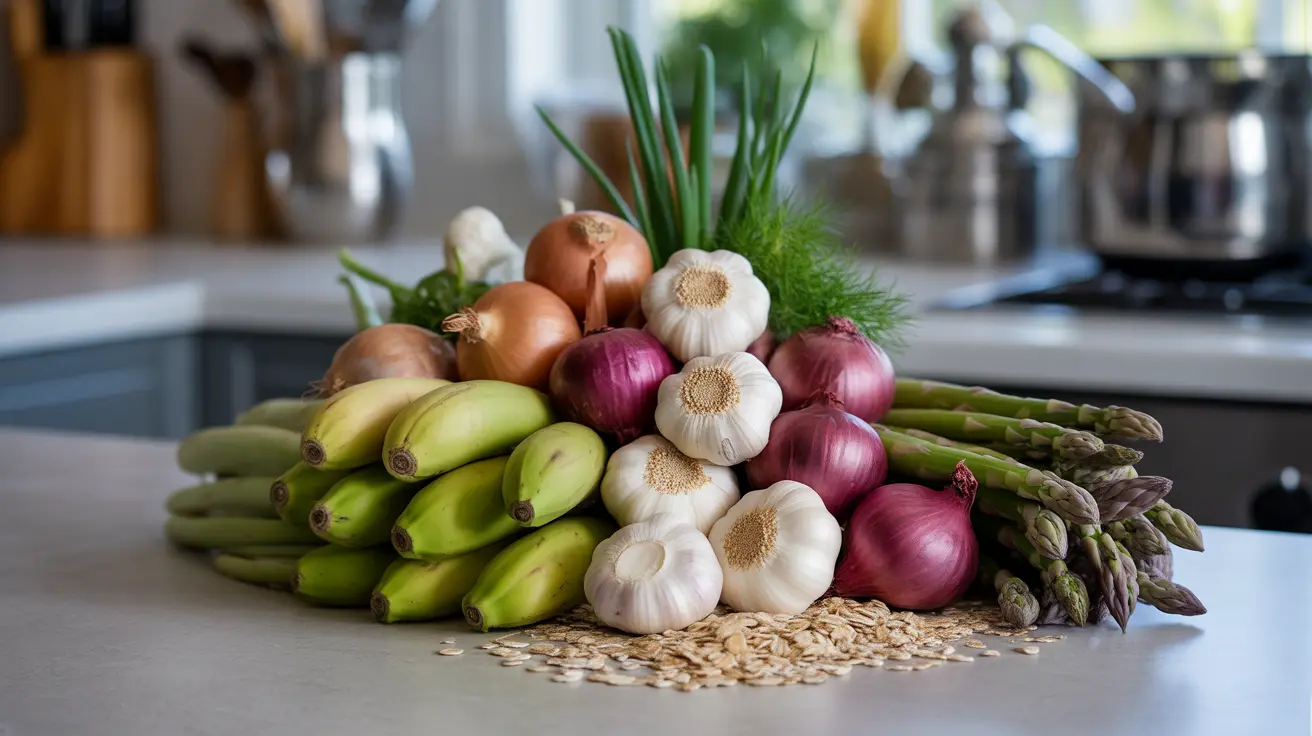Prebiotic foods are a crucial yet often overlooked component of a healthy diet that can significantly impact your digestive wellness and overall health. These powerful dietary elements work as fuel for beneficial gut bacteria, helping to maintain a balanced and thriving digestive system.
In this comprehensive guide, we'll explore what makes certain foods prebiotic, their remarkable health benefits, and how to incorporate them effectively into your daily meals for optimal gut health.
What Are Prebiotic Foods?
Prebiotic foods contain specific types of fiber that your body cannot digest but serve as nourishment for beneficial gut bacteria. These dietary components pass through your digestive system unchanged until they reach your colon, where they become food for beneficial microorganisms.
The most important characteristic of prebiotic foods is their ability to support the growth of beneficial bacteria, particularly species like Bifidobacteria and Lactobacilli, which are essential for digestive health and immune function.
Top Natural Sources of Prebiotics
Vegetables and Roots
Several common vegetables are excellent sources of prebiotics:
- Garlic (raw or cooked)
- Onions
- Leeks
- Jerusalem artichokes
- Chicory root
- Dandelion greens
Fruits and Legumes
These plant-based foods offer significant prebiotic benefits:
- Green bananas (especially when slightly underripe)
- Apples
- Asparagus
- Chickpeas
- Lentils
Whole Grains
Certain whole grains provide valuable prebiotic fiber:
- Oats
- Barley
- Wheat bran
- Flaxseeds
Health Benefits of Prebiotic Foods
Including prebiotic foods in your diet can lead to numerous health advantages:
Digestive Health
Prebiotic foods support regular bowel movements, reduce inflammation, and help maintain the integrity of your gut barrier. They also promote the production of beneficial short-chain fatty acids that nourish colon cells.
Immune System Support
A healthy gut microbiome, supported by prebiotics, plays a crucial role in immune function. Regular consumption of prebiotic foods can help strengthen your body's natural defenses against illness.
Nutrient Absorption
Prebiotics enhance your body's ability to absorb essential minerals like calcium and magnesium, contributing to better bone health and overall nutrition.
How to Include Prebiotics in Your Diet
Start incorporating prebiotic foods gradually to avoid digestive discomfort:
- Begin with small portions
- Increase intake slowly over several weeks
- Combine with plenty of water
- Listen to your body's response
- Choose a variety of prebiotic sources
Frequently Asked Questions
What are prebiotic foods and how do they benefit gut health?
Prebiotic foods contain special types of fiber that feed beneficial gut bacteria. They benefit gut health by promoting the growth of healthy bacteria, supporting regular digestion, reducing inflammation, and strengthening the gut barrier function.
Which foods are the best natural sources of prebiotics?
The best natural sources include garlic, onions, bananas, Jerusalem artichokes, chicory root, asparagus, and whole grains like oats and barley. These foods contain high levels of prebiotic fiber that effectively nourishes beneficial gut bacteria.
How can I add prebiotic foods to my diet without causing digestive discomfort?
Start with small portions and gradually increase intake over several weeks. Choose one prebiotic food at a time, ensure adequate water intake, and pay attention to your body's response. This gradual approach helps minimize potential digestive issues like bloating or gas.
Can prebiotic foods help with weight management and blood sugar control?
Yes, prebiotic foods can aid in weight management by promoting feelings of fullness and supporting healthy metabolism. They also help regulate blood sugar levels by slowing down digestion and improving insulin sensitivity.
What is the difference between prebiotics and probiotics, and should I consume both?
Prebiotics are dietary fibers that feed beneficial gut bacteria, while probiotics are live beneficial bacteria themselves. Consuming both is beneficial as they work synergistically: prebiotics provide nourishment for probiotics to thrive. This combination, known as synbiotics, offers optimal support for gut health.




